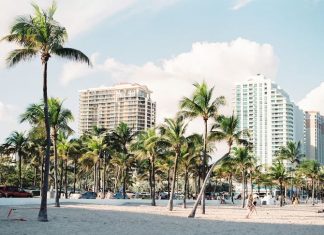Avocados are one of the most popular fruits in the United States. In 2018 alone, we consumed nearly 2.5 billion pounds of it. And with Cinco De Mayo just a few days away, you can bet that restaurant menus throughout the country will be filled with your choice of Mexican-themed avocado dishes.
But where do these beloved fruits come from? Where do the pits go when we are finished with them? And what kind of impact does consuming these fruits have on our environment?
There’s always a connection between what we eat, the environment, politics and people.
-Erica Berger
From May 5 through 13, Los Angeles-based artist and journalist, Erica Berger, will be debuting her first human-scale art installation meant to shed light on the greater impacts of our dietary decisions.
In this one-of-a-kind installation, 15 of the most popular restaurants from around Los Angeles that have avocado on their menus will be partnering with the artist to highlight an overlooked relationship between people, policy and planet. Berger has collected one day’s worth of pits from each restaurant and coated them in gold — a nod to California’s golden history. The gold pits will be arranged into a four-by seven-foot sculpture.
During the mid-19th century, gold was the main resource affecting supply, demand and international relations. But today, it’s often the foods we consume.
In the past three years, the relationship between the US and Mexico has resulted in a spike in avocado prices at least three times. While we lock our focus on the people immigrating into the US, avocados make their way over the border unnoticed, into our landfills, where they proceed to emit methane gas into our atmosphere.
The first installation will take place on May 5 at the Smorgasburg Produce Market in downtown Los Angeles. After, the sculpture will be installed for the LA Times Food Bowl at Otium in downtown Los Angeles in partnership with Chef Timothy Hollingsworth. During this VIP event, restaurant owners will be discussing sustainability, Los Angeles food culture and the ethnic makeup of their kitchens. LA Compost, whose main goal is to raise awareness about the importance of composting and managing food waste, will be a charity partner of the event.
To Berger, the message is important.
“Eating is more than just eating. It is ultimately a political choice affecting people, the environment and human well-being. There’s always a connection between what we eat, the environment, politics and people. It’s finally time to bring this to light and further the complex but important conversation.”









